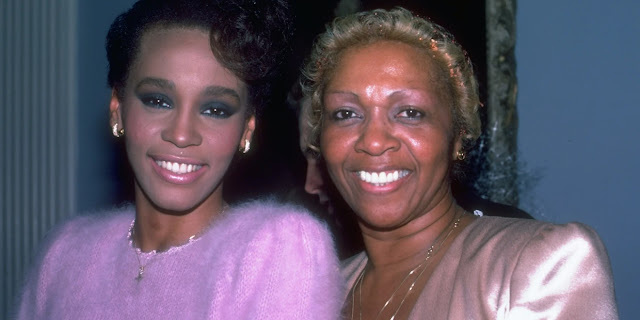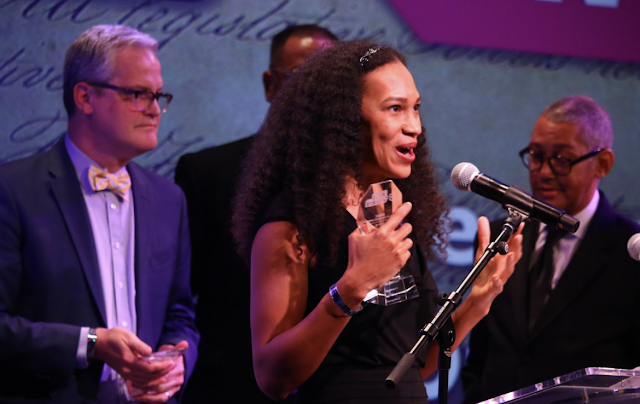The Greatest Love: Whitney Houston and Robyn Crawford
I hesitated to read Robyn Crawford's book A Song for You: My Life with Whitney Houston, primarily because I was preoccupied with the launch of my own book. But when I read recently that Whitney Houston's final recording contract was worth 100 million dollars, I dropped everything to rush out and grab that book.
Evidently, 100 million dollars was not enough to keep Whitney alive. Hers was a story of addiction. She had her first taste of cocaine when she was only 14. It is so tragic that she never received the help she needed to get healthy and stay alive. She was vilified in the media as the good-girl-gone-bad who let her talents go to waste. But Robyn Crawford, who witnessed her meteoric rise, felt the need to set the record straight and "lift Whitney up" after the media chose to put their energy into tearing her down.Imagine the stress and pressure Whitney must have felt knowing that she was losing her voice, after having been paid a hundred million dollars for her album, and knowing that she would have to tour to promote that album. During her final concerts she faced bad reviews, boos, and walkouts. I can imagine how she felt she needed to turn to drugs and alcohol to cope with the humiliation. |
| Whitney and her mother Cissy Houston |
 |
| The Sweet Inspirations |
 |
| Dee Dee Warwick |
Children often blame themselves when they are the victims of such abuse. Survivors often turn to drugs and alcohol to numb the pain. Imagine being a child, feeling like a "sinner," and standing before a church congregation hoping that no one can see just how guilty you feel. Whitney's mother's church did nothing to help her. It simply made her feel like she needed to hide.
Robyn tells the story of Whitney handing her a blue Bible the day before Valentine's Day of 1983, and announcing that it was the end of their physical relationship. She didn't want to have to worry about rumors that they were lesbians circulating, and potentially destroying her career. She was only nineteen, and she wanted Robyn to commit to a life of celibacy so that they could stay together as "friends." Robyn wrote of being slapped by Whitney when she thought that she was sleeping with one of her dancers. (Meanwhile, Whitney was rumored to have had multiple sexual relationships with men including Jermaine Jackson, Eddie Murphy, and Bobby Brown, whom she eventually married.) After Robyn was an employee, Cissy also slapped her for leaving Whitney alone in a hotel for a day. If Cissy could slap her daughter's assistant so easily, one can imagine the kind of physical abuse that Whitney herself was subjected to. Whitney definitely comes across in the book as a woman who was afraid of her mother.
I hope that Robyn Crawford feels that she accomplished what she set out to accomplish. Now she is married to a woman she met while Whitney was filming The Bodyguard, and they have two children. But when I think of all the singers we have lost to drug addiction, it makes me wonder exactly what it is about this industry that is so toxic, that forces performers to need to escape. Whitney Houston was one of the best-selling recording artists of all time, with sales of over 200 million records worldwide; and at the time of its release, The Bodyguard was the tenth highest-grossing film of all time. The soundtrack album went on to win Album of the Year at the 1993 Grammy Awards. But Whitney had no peace. She was afraid of her mother, afraid of losing Robyn, afraid of being outed, and afraid of losing her voice. I truly hope that she has finally found peace.







Comments
Post a Comment